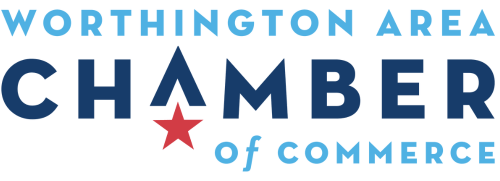The Pandemic, the Great Resignation, record-setting inflation, technology and changes in social culture have created a conundrum for second-decade 21st Century leaders.
We’ve been through a great deal over the past two and a half years, and while organizations faced age-based diversity challenges prior to 2020, more recent events are creating new challenges.
Pre-pandemic, one of our workshop attendees who worked with individuals between the ages of 18 to 80 remarked that she, “finds that young people have little loyalty or respect for authority, while the older individuals sometimes feel they should have a managerial position just because they have experience.” Post-pandemic, the complaint is often that “young people don’t want to work, or won’t even show up for interviews.” Meanwhile, Baby Boomers who had delayed retirement are now retiring rather than deal with Covid-related leadership decisions (i.e., mask mandates, vaccine requirements, forced remote working or return to office edicts). For leaders, the challenge is to determine the why.
When we speak to groups on the topic of intergenerational communication, we spend a good bit of time discussing the impact of stereotypes in interpersonal relationships. The problem with this line of thinking is that we unconsciously put people in boxes and then force them to “prove” themselves to us. As a society we put people in boxes all of the time by placing labels on them in order to determine how they fit into what we know. The popularity of DE&I training programs, meant to help organizations become more inclusive, emphasizes the importance labels have in our current climate. The problem with putting people in preconceived boxes is that we project onto them our own understanding based on our own values and experiences. When we don’t see the whole person, void of the boxes, we miss the value each individual brings to our organization.
While some organizational challenges are rooted in differences in communication and social styles, others are occurring because of changes in societal priorities. For example, our leader’s frustration that “young people have little loyalty or respect for authority” can be a problem indicative of an internal communication problem. Evidence of hypocrisy, shortsightedness, or inadequate enumeration of expectations may be contributing to why respect and loyalty are problematic. The problem of “older individuals expecting managerial positions based on their experience” may be symptomatic of poorly communicated goals and expectations.
The newest conundrum facing leaders today is transitioning workers from working remote to back to the office. Having adjusted to a new work/life balance over the past couple years, and now faced with higher priced gasoline for the commute, family issues, and an illness that won’t relinquish its grip, returning to an office environment is far less attractive to many regardless of the generation. Some employers are taking an all-or-nothing approach, others are allowing flexible arrangements. Workers, particularly younger workers, seem to be happier with those employers who are able to take a more flexible approach. From a generational perspective, whatever your situation, this issue seems to be widening the generation gap in the workforce.
Our recommendation to leaders is to listen – really listen to the WHY. Why is an employee (not a generation) hesitant to return to the office? Why are they eager to return? Are those who work remotely getting their work done? Is there a compromise? Maybe one-size-fits-all is not the best approach for your organization; maybe it has to be. Performing a SWOT analysis looking at the strengths, weaknesses, opportunities and threats for each approach (i.e., all-or-nothing, flexible hybrid arrangements, or some other solution) can be a great tool in determining what will work best for your environment – provided you have the luxury of having a choice.
Want to learn more, contact Intergenerational Communication Solutions to schedule a complimentary consultation interview, or to book Terrie Huston and/or Kerry Strayer, Ph.D. to deliver a Lunch & Learn program or their 2-hour workshop on Intergenerational Communication.
614.284.4217 (leave a message and Terrie will return your call)
Terrie Huston is the principal consultant and owner of Intergenerational Communication Solutions (IGC Solutions) and training partner with Strayer-Huston, LLC. Within IGC Solutions, Terrie has facilitated soft skills training as a corporate training consultant, and brings more than 30 years’ experience in board service to her work assisting organizations with board and leader development, organizational development, succession planning and communication strategies.
Through Strayer-Huston, LLC, Terrie incorporates 20+ years-worth of research in intergenerational studies into her work as an instructional designer and facilitator for the company’s two Signature Training programs on generational communication and non-profit board service.
Terrie earned her BA with Distinction in Organizational Communication from Otterbein College.
